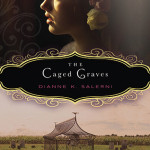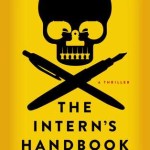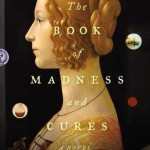 It’s 1327, and Brother William Baskerville and his companion (monk-in-training Adso of Melk) have just arrived at an unnamed abbey somewhere in Italy or France. A resident of the abbey has committed suicide — or possibly been murdered — and the abbot has requested that William investigate.
It’s 1327, and Brother William Baskerville and his companion (monk-in-training Adso of Melk) have just arrived at an unnamed abbey somewhere in Italy or France. A resident of the abbey has committed suicide — or possibly been murdered — and the abbot has requested that William investigate.
William hopes for a quick resolution, but the abbey and its occupants have their secrets — and no one is willing to share. The danger escalates quickly as six more of the abbey’s occupants are shuffled violently off this mortal coil, and it is up to William and Adso to uncover the killer before he strikes again.
It had such promise
How could I pass up a book whose main character is considered a “medieval Sherlock Holmes”? I didn’t enjoy the original Holmes short stories as much as I wanted, but I did like Holmes himself, and was excited to see some of his most famous traits set against the backdrop of medieval Europe.
I liked William enough; it was the rest of Umberto Eco’s The Name of the Rose I couldn’t stand, and eventually had to DNF for two main reasons.
1. Constant philosophical drivel – The novel starts off perfectly, with William using his Sherlockian powers of observance to solve the mini-mystery of the abbot’s missing horse. But soon the reader realizes that the novel is merely a vehicle for Eco’s philosophical and religious mental masturbation. It’s like he went in with an idea for a philosophy text but his publisher convinced him it wouldn’t sell unless it was a mystery novel, so he Frankenstein’d this monstrosity together.
It felt like all the monks were in a constant pissing contest, each trying to get in as much about how great their beliefs were and how dumb everyone else’s were.
2. Unnecessary Latin everywhere – Usually in conjunction with the aforementioned philosophical drivel. William would be the middle of questioning a suspect or witness about the interesting plot point (murdered monks), then suddenly off they’d go quoting long strings of Latin — with no translation provided by the author — and debating various religious tenets.
I wanted to see more of William’s crime-solving brilliance, not his arguments with other monks about religion. It was distracting; instead of being able to sink into a great plot, I was constantly aware of skipping long sections of Latin and incomprehensible chatter.
I tried to stick it out to see if the murder plot would pick up, but it never did — and I’m just not willing to put up with a bunch of garbage for a story that’s just not worth it. I’d have tossed the book out a window if it weren’t a library copy. Total failure.






